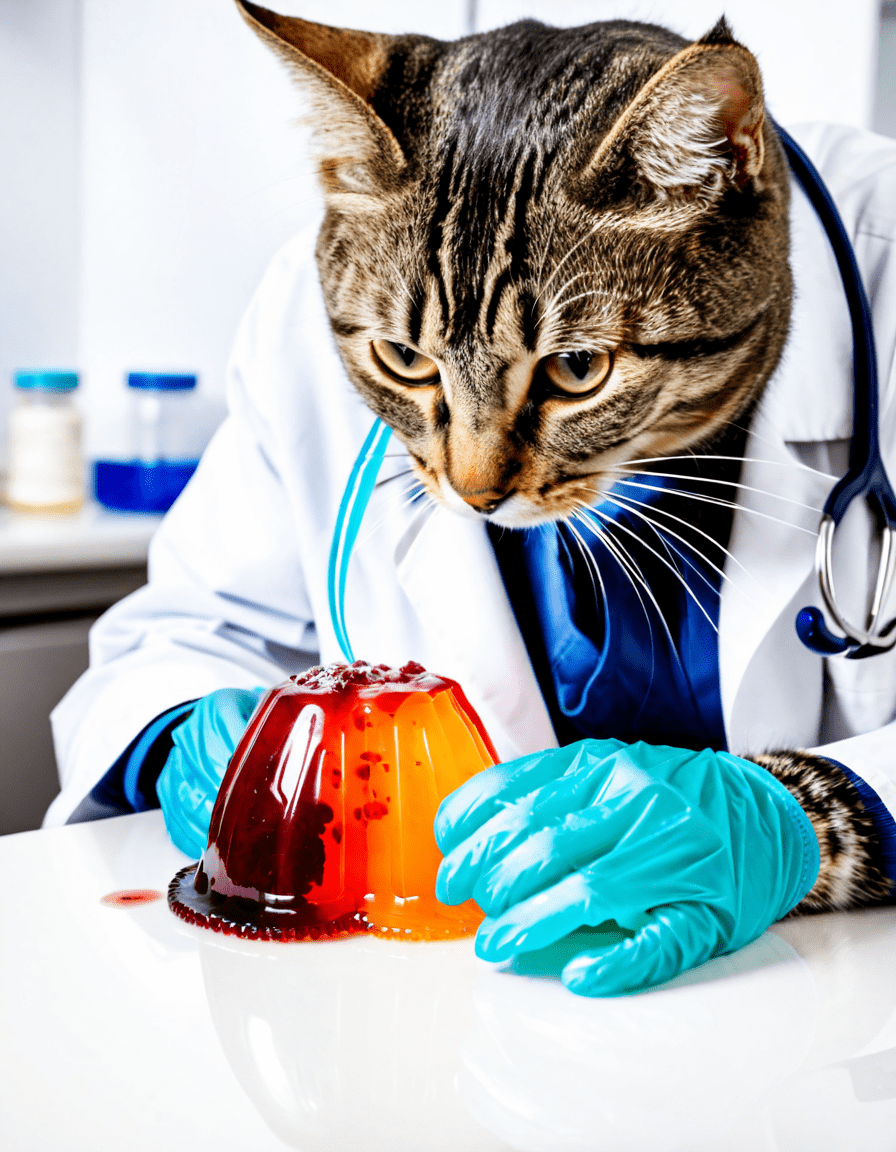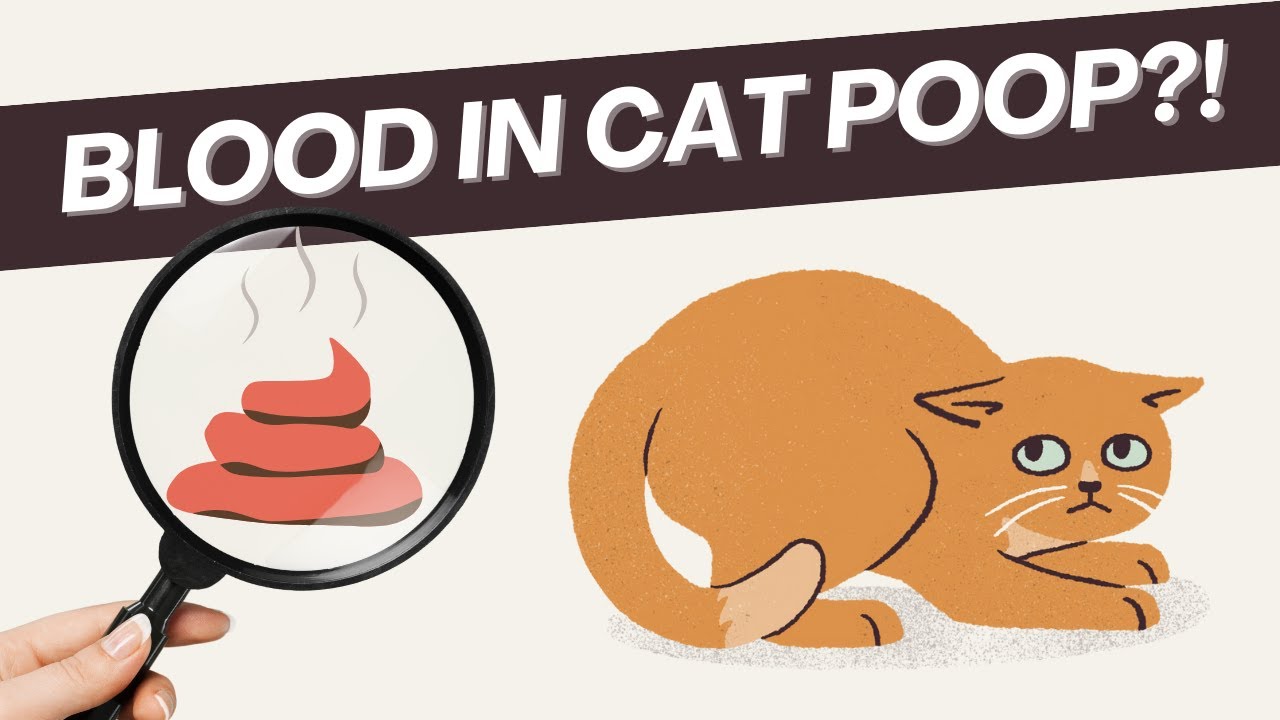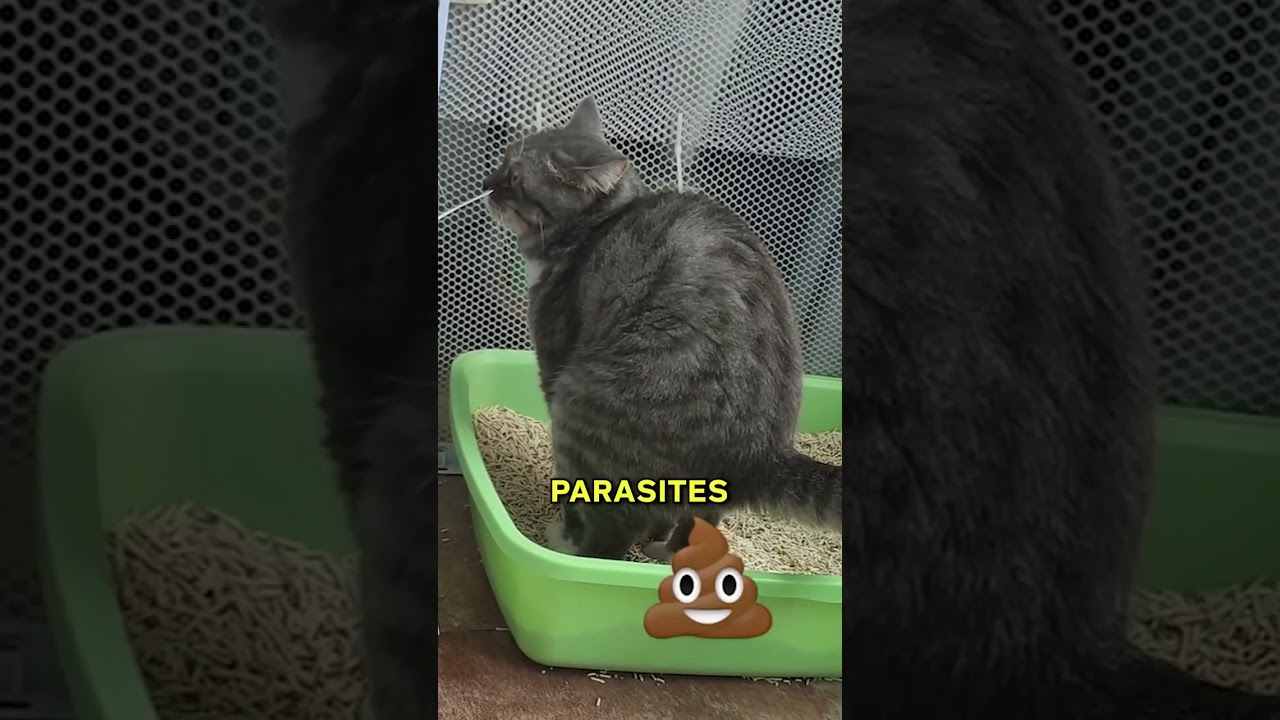Discovering your cat pooping jelly-like substances with blood can be a shocking experience. It may leave you feeling helpless, worried about your beloved feline friend. This condition can indicate several underlying health issues, some serious while others may be easily treated. In this article, we’ll break down the most common causes of this distressing symptom, and why prompt veterinary attention is essential for your cat’s well-being.
## Cat Pooping Jelly-Like Substance with Blood: Is It Serious?
When you notice your cat pooping jelly-like substances with blood, it’s crucial to pay attention and act quickly. There are various reasons why this may happen, ranging from infections to dietary issues or even stress. Understanding these potential causes can help you provide the necessary information to your veterinarian, ensuring your cat gets the care it urgently requires.
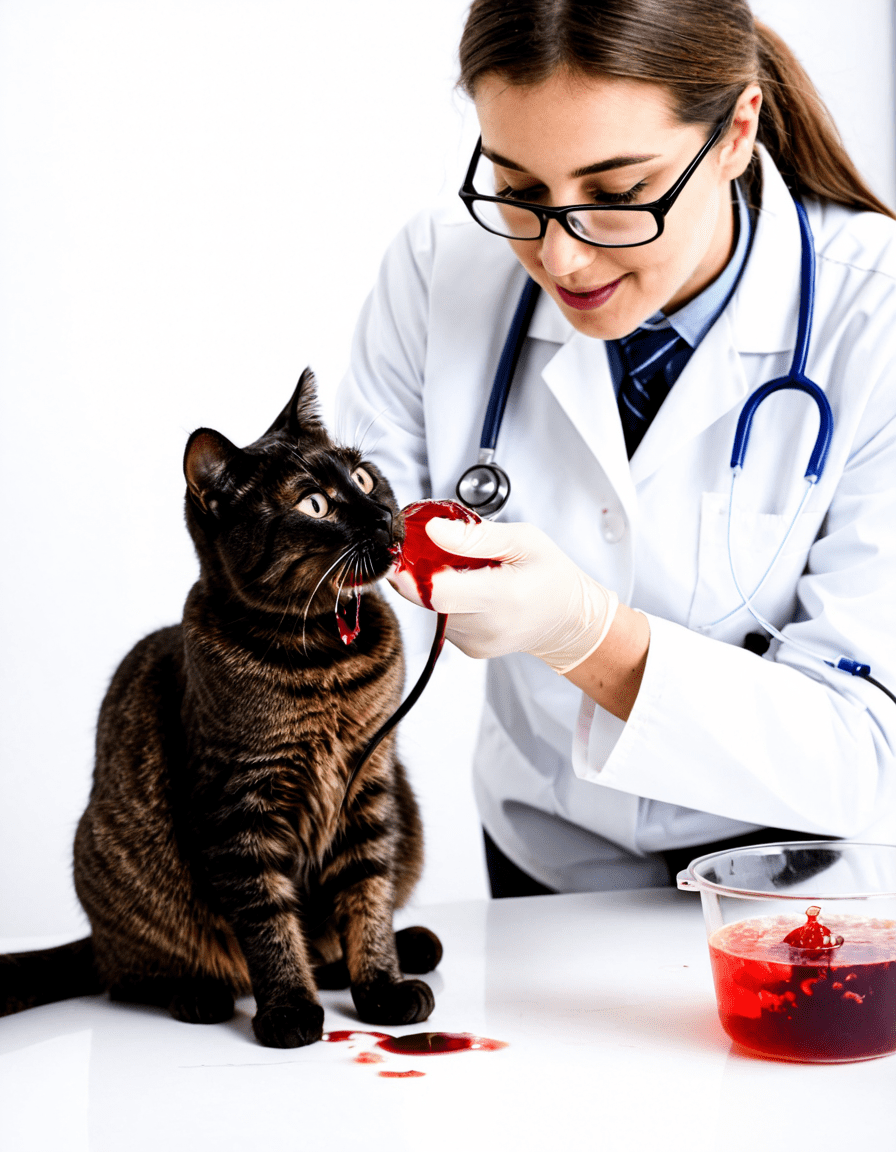
Top 5 Reasons Your Cat May Be Pooping Jelly-Like Substance with Blood
1. Gastrointestinal Infections
Gastrointestinal infections can be a common issue in cats. These infections can arise from parasites, bacteria, or viruses. For example, feline panleukopenia is a severe viral infection that can lead to significant health issues, including diarrhea with blood and mucus. Another culprit could be coccidia, a parasite that can cause inflammation and the excretion of jelly-like feces. If you suspect your cat has an infection, don’t delay; veterinary intervention is necessary for diagnosis and treatment, potentially including medications to combat the infection.
2. Inflammatory Bowel Disease (IBD)
Inflammatory Bowel Disease (IBD) is another common reason for abnormal stool in cats. This autoimmune condition inflames the cat’s intestine, leading to various symptoms, such as diarrhea, weight loss, and, yes, jelly-like stools that may contain blood. While IBD can be daunting, it often requires a change in diet and anti-inflammatory medications, which a vet can prescribe. With proper management, many cats can lead happy lives.
3. Food Intolerances or Allergies
Just like us, cats can have food sensitivities. Allergies to certain proteins present in mainstream cat foods, such as Purina Pro Plan or Hill’s Science Diet, can disrupt their digestive systems. If your cat is eating something that doesn’t agree with them, you might find their feces turning weirdly gummy or even bloody. Consulting your vet about trying a hypoallergenic diet could do wonders for your cat’s health!
4. Stress and Behavioral Changes
Believe it or not, stress can be just as harmful to your cat’s gut as any illness. Cats are sensitive creatures, and changes in their environment—like a new pet or loud noises—can lead them to develop gastrointestinal issues. Stress-induced colitis may show up as blood-streaked or jelly-like stools. To assist your stressed-out kitty, creating a calm environment with plenty of hiding spots and comforting toys can help ease their anxiety and upset tummy.
5. Underlying Medical Conditions
Serious underlying medical conditions can also present with symptoms of jelly-like feces with blood. Tumors or diseases affecting essential organs like the liver or kidneys may lead to these gastrointestinal changes. Regular veterinary examinations are crucial for catching these issues early, especially if your cat is showing other symptoms like lethargy or decreased appetite.
Observing Other Symptoms: What You Should Look For
Keeping an eye on your cat’s behavior is essential when you spot them pooping jelly-like substances with blood. Noticing additional symptoms helps your vet during the consultation process. Here are some key signs to monitor:
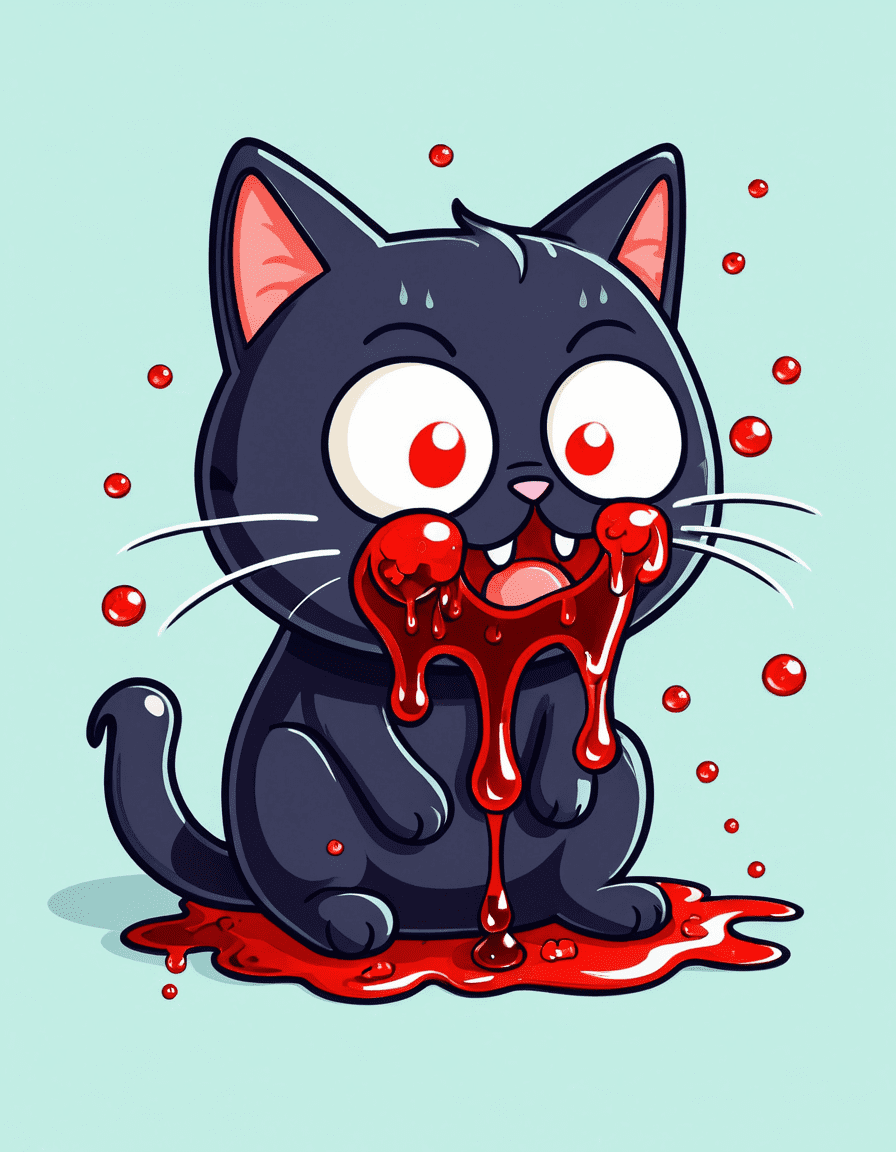
Veterinary Care: Getting the Help Your Cat Needs
Don’t hesitate to seek veterinary attention if you notice your cat pooping jelly-like substances with blood. This is an urgent matter that requires professional evaluation. Your veterinarian will likely perform a thorough physical examination, run diagnostic tests, and maybe even suggest imaging studies to get to the bottom of the issue. The sooner you act, the better the outcome for your feline friend.
Preventive Measures and Best Practices
A proactive approach can significantly reduce the chances of gastrointestinal issues in your cat. Here are some strategies to consider:
In conclusion, discovering your cat pooping a jelly-like substance with blood can be alarming, but it’s essential to stay calm and focus on the next steps. Keep an eye on any accompanying symptoms, seek veterinary help without delay, and adopt preventive measures to ensure your furry friend maintains its health. Remember, timely intervention and awareness can lead to better health outcomes for your cherished feline companion.
Cat Pooping Jelly Like Substance with Blood: What You Need to Know
When you notice your cat pooping jelly like substance with blood, it’s serious business. This unusual stool can be alarming and may signal underlying health issues. From infections to potential gastrointestinal problems, there’s a wide range of causes. Knowing the signs and acting quickly can make a world of difference. Did you know that early intervention is key? Similar to how red laser therapy works For bulging Discs in Dogs ’ back by alleviating pain, addressing your cat’s symptoms promptly can lead to a better outcome.
The Who’s Who of Cat Health Issues
Cats can be picky about their litter box habits, and when they start pooping jelly like substance with blood, it’s time for a closer look. This condition is often accompanied by other symptoms like anorexia or changes in behavior. It’s critical to partner with your vet for a diagnosis. Interestingly enough, a stressed cat could behave much like a celebrity under pressure—like Joe Dimaggio facing the media! Cats are sensitive creatures, and their health reflects their emotional state.
Keeping Things Safe in the Home
While you’re inspecting your cat’s symptoms, it’s also a good idea to evaluate their environment. Make sure to check for anything that could be harmful, much like you wouldn’t just toss a small axolotl in a tank without considering its tankmates. Similarly, a clean litter box can greatly affect your cat’s behavior. A tidy space can help your feline friend feel secure, potentially reducing stress that could contribute to their symptoms.
Don’t forget, if you see troubling signs, such as your cat pooping jelly like substance with blood, stay alert and seek professional help. Funny enough, it’s like waiting for the next season of your favorite show—like Ozark Season 5; you never know what twists might await if you ignore the early clues! And remember, the overall health of your cat could hinge on the small details.
